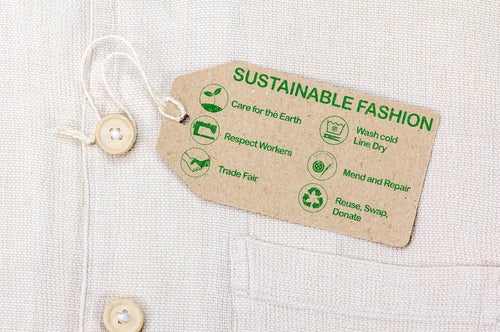
Sustainability – both social and environmental – is rising higher on the priority list for apparel brands and retailers as many are expected to comply with legislation – either active or incoming – which holds them accountable for their actions in supply chains.
Such legislation is wide-ranging, covering everything from a brand or retailer’s impact on the environment, for example emissions and water waste, to steps to monitor and eliminate modern slavery in supply chains.
Interestingly, it’s not just the legislative pressures prompting clothing brands and retailers to fix up when it comes to sustainability. There is an inherent fear among them that consumers will switch brands to ones that appear to be more aware of their social and environmental impact. It comes with a growing awareness among consumers that their purchasing actions have an impact on people right at the end of the supply chain. This is evidenced by the growth in the market share of secondhand clothing. By 2023, the secondhand market is expected to grow to as much as 40% as a percentage of overall apparel and footwear.
Last week, Euric, the confederation that represents European recycling industries at EU level, made a global textile recycling plea, noting that secondhand clothes are deemed 70x more sustainable than newly produced ones.
While Mango announced the launch of its first denim collection made from a single type of fibre, no rivets or jacron labels to enable easier recycling. By 2030 it is aiming for all of its product designs to use only fibres that are of a sustainable origin or recycled.
And the annual Global 100 ranking of the world’s most sustainable companies, published by Corporate Knights, revealed sports brands Puma and Adidas shot up the list from 77 to 47 and 82 to 66 respectively, proving sustainable strides are paying off.
With global governments pressuring apparel brands and retailers to put their money where their mouths are and prove they truly are taking steps to improve the condition of the planet, one thing we are seeing from the industry is more concrete claims.
Do these efforts ladder up to the 1.5-degree pathway?
Well, only time will tell. But it’s certainly a step in the right direction.
Top stories this week on Just Style
Mango rolls out first denim capsule under new circularity vision
Mango has launched its first denim collection made with a single type of fibre, no rivets or jacron labels to enable easier recycling in an apparent nod to circularity.
Puma, and Adidas improve sustainability rankings in 2023
Puma, Adidas and Gildan have all improved their rankings on the Corporate Knights’ 2023 Global 100 list of the world’s most sustainable corporations.
Global textile recycling plea as secondhand clothes deemed 70x more sustainable
A new life-cycle assessment (LCA) commissioned by EURIC on behalf of European textile reuse and recycling industry suggests secondhand clothing has a 70 times lower environmental impact and calls for initiatives to accelerate investments in global textile recycling facilities.
Ralph Lauren Corp launches cashmere recycling programme
Ralph Lauren Corp has launched a new cashmere recycling programme as part of efforts to support a circular economy.
In other news
Fashion brands need consumer trust to expand in the metaverse
Q&A – Ranjan Mahtani, Executive Chairman, Epic Group
Brands failing to protect Myanmar garment workers
Reliance Retail acquisition of V Retail opens access to lucrative Indian footwear market



